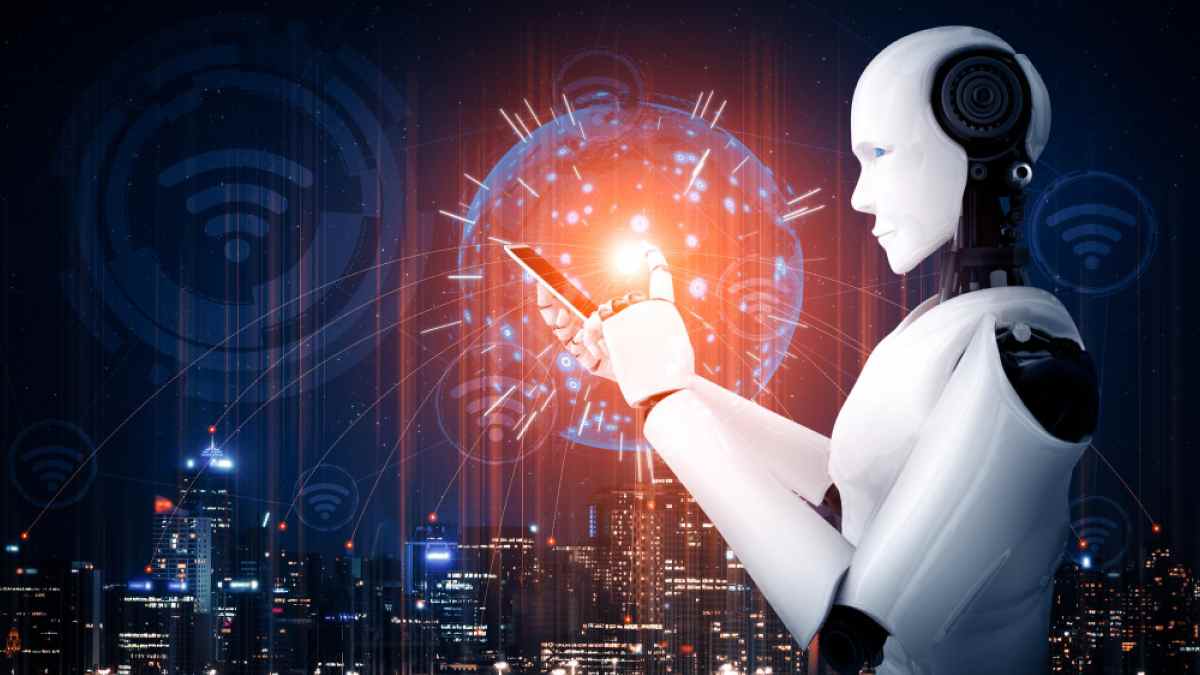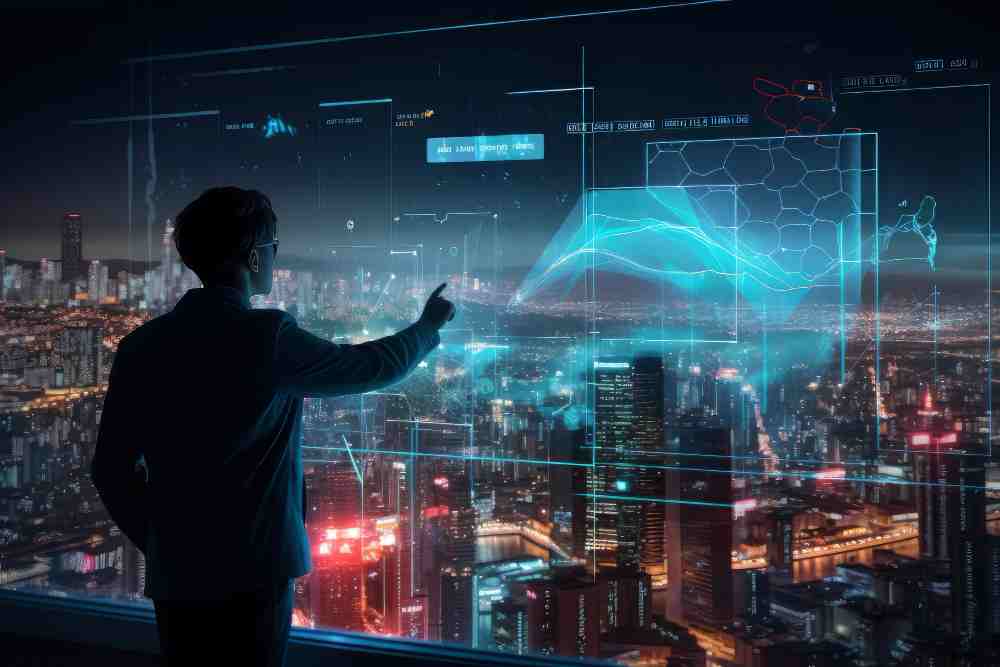Artificial Intelligence (AI) has rapidly evolved from a futuristic concept to a transformative force reshaping industries, economies, and everyday life. As AI technologies advance, they are becoming increasingly integrated into various aspects of our lives, from personal assistants like Siri and Alexa to complex systems in healthcare, finance, and transportation. In this blog, we’ll explore the current state of AI, its impact on different sectors, and the ethical considerations that come with its widespread adoption.
1. What is Artificial Intelligence?
Artificial Intelligence refers to the development of computer systems capable of performing tasks that typically require human intelligence. These tasks include problem-solving, understanding natural language, recognizing patterns, and making decisions. AI can be broadly categorized into two types: Narrow AI and General AI.
- Narrow AI: This is AI designed to perform specific tasks, such as voice recognition or image classification. Most of the AI systems in use today fall under this category.
- General AI: This is a more advanced form of AI that can perform any intellectual task a human can do. While still largely theoretical, General AI represents the ultimate goal of AI research.
2. The Impact of AI Across Industries
AI is transforming various industries by automating processes, enhancing decision-making, and unlocking new possibilities. Here’s how AI is impacting some key sectors:
- Healthcare: AI is revolutionizing healthcare by enabling more accurate diagnostics, personalized treatments, and efficient management of healthcare systems. Machine learning algorithms can analyze vast amounts of medical data to identify patterns that might be missed by human doctors, leading to earlier detection of diseases and better patient outcomes. AI-powered robots are also assisting in surgeries, reducing human error, and improving precision.
- Finance: In the finance sector, AI is being used to detect fraudulent transactions, predict market trends, and automate customer service through chatbots. AI algorithms can analyze financial data at incredible speeds, allowing for more informed investment decisions and risk management. Robo-advisors are another example, providing personalized financial advice to users based on their goals and risk tolerance.
- Transportation: AI is at the heart of the development of autonomous vehicles. Companies like Tesla, Waymo, and Uber are using AI to create self-driving cars that can navigate roads, avoid obstacles, and reduce the risk of accidents. AI is also optimizing logistics and supply chains, improving the efficiency of delivery services, and reducing operational costs.
- Retail: In retail, AI is enhancing the shopping experience by providing personalized recommendations, optimizing inventory management, and automating customer service. Retailers use AI to analyze customer behavior, preferences, and purchasing patterns to create targeted marketing campaigns and improve customer satisfaction.
- Manufacturing: AI-driven automation is transforming manufacturing by optimizing production processes, reducing downtime, and improving product quality. Predictive maintenance, powered by AI, helps manufacturers anticipate equipment failures before they occur, reducing costly disruptions. Robotics and AI are also enabling the development of smart factories, where machines can communicate and collaborate to improve efficiency.
3. AI in Everyday Life
AI is increasingly becoming a part of our daily lives, often in ways we may not even realize. From the moment we wake up to the time we go to bed, AI is there, making our lives easier and more connected.
- Personal Assistants: Virtual assistants like Siri, Google Assistant, and Alexa use AI to understand voice commands, answer questions, control smart home devices, and manage schedules. These AI-powered tools are designed to learn from user interactions, becoming more accurate and personalized over time.
- Smart Homes: AI is at the core of smart home technology, enabling devices like thermostats, security cameras, and lighting systems to learn from our habits and preferences. These devices can anticipate our needs, improve energy efficiency, and enhance home security.
- Social Media: AI algorithms are behind the content we see on social media platforms. They analyze user behavior to recommend posts, friends, and advertisements that align with our interests. AI also helps moderate content, detect fake news, and prevent the spread of harmful information.
- Entertainment: Streaming services like Netflix and Spotify use AI to recommend movies, shows, and music based on our viewing and listening history. AI is also being used to create new content, such as AI-generated music, art, and even video games.
4. Ethical Considerations in AI
As AI becomes more pervasive, it raises important ethical questions and challenges that need to be addressed:
- Bias and Fairness: AI systems are only as good as the data they are trained on. If the data is biased, the AI can produce biased outcomes, leading to unfair treatment or discrimination. It is crucial to develop AI systems that are transparent and fair, ensuring that they do not perpetuate existing inequalities.
- Privacy: AI’s ability to collect and analyze vast amounts of personal data raises concerns about privacy. It is essential to establish guidelines and regulations to protect individuals’ privacy rights and ensure that data is used responsibly.
- Job Displacement: The automation of tasks through AI could lead to significant job displacement in various sectors. While AI can create new opportunities, it is important to consider the impact on the workforce and provide support for those whose jobs are at risk of being automated.
- Autonomy and Control: As AI systems become more advanced, there is a growing concern about the extent to which they should be allowed to make decisions independently. Establishing clear boundaries for AI autonomy and ensuring that humans remain in control is critical.
5. The Future of AI
The future of AI holds tremendous potential, with the possibility of even more profound changes across industries and society. Some key areas to watch include:
- AI in Healthcare: Continued advancements in AI could lead to the development of more sophisticated diagnostic tools, personalized medicine, and AI-driven drug discovery.
- Human-AI Collaboration: The future will likely see closer collaboration between humans and AI, where AI augments human capabilities rather than replacing them. This partnership could lead to new innovations and solutions to complex problems.
- AI Governance: As AI becomes more powerful, the need for effective governance will become increasingly important. International cooperation, ethical guidelines, and regulatory frameworks will be essential to ensure that AI benefits humanity as a whole.
- General AI: While still in the realm of science fiction, the development of General AI could lead to machines that possess human-like cognitive abilities. The implications of such a breakthrough would be immense, raising questions about consciousness, morality, and the future of humanity.
6. Conclusion
Artificial Intelligence is undeniably one of the most transformative technologies of our time. Its impact is being felt across industries, in our daily lives, and on a global scale. As AI continues to evolve, it will bring about new opportunities, challenges, and ethical considerations that we must address.
The future of AI holds great promise, but it also requires careful thought and responsible development. By embracing AI’s potential while addressing its risks, we can ensure that this powerful technology serves the greater good, driving progress and improving lives around the world.





